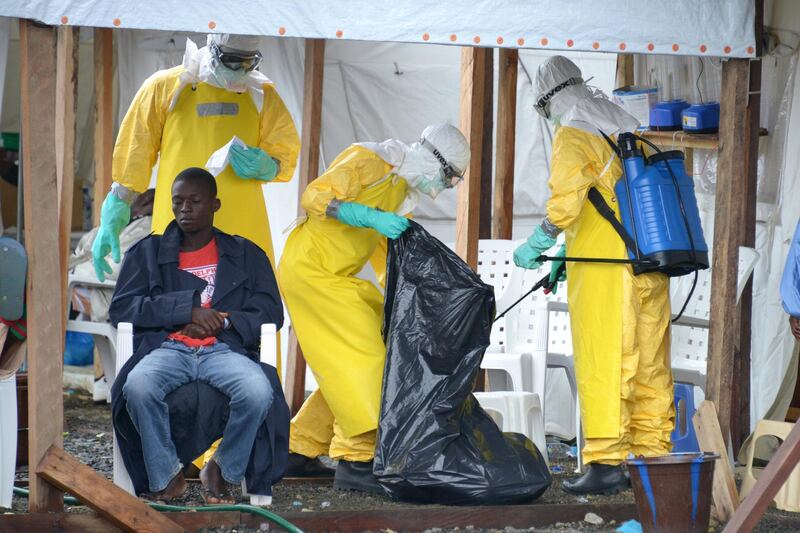Fragile health systems have the potential to cause global catastrophes unless security is bolstered on the care front line, the World Health Organisation has warned in Dubai.
Pandemics are the biggest threat facing humanity, according to WHO director general Dr Tedros Adhanom who said reporting and monitoring measures have improved since the West African Ebola outbreak of 2014.
Ebola spread like wildfire, claiming the lives of 11,315 people across six countries, with the total reported cases following the outbreak at 28,637.
Dr Adhanom echoed calls for nations to push for universal health coverage to help contain and limit the damage of potential outbreaks, and said contingency funding to prevent outbreaks is far cheaper than trying to contain a pandemic.
"A devastating epidemic can start in any country at any time, and kill millions of people, because we are not prepared, because we're still vulnerable"—@DrTedros #HealthSecurity #WorldGovSummit pic.twitter.com/w83DTXAmwb
— World Health Organization (WHO) (@WHO) February 12, 2018
“Ebola exposed fault lines in global security by showing a fragile health system can expose the world to the risk of catastrophe. It had a devastating economic impact,” Dr Adhanom said on day two of the World Government Summit in Dubai.
“It is not enough to respond to outbreaks; they must be prevented. The greatest current threat to health security is the absence of universal health coverage for 3.5 billion of the world's people.
“When people are unable to access healthcare, the early signs of disease are often missed, making outbreaks more likely.
“People should understand that health coverage and health security are two sides of the same coin.”
___________
More from the World Government Summit:
Why being the world's only cyborg can be a real headache
UAE is providing world with a glimpse of the future says leading space expert
Women and children bearing the brunt of 'truly horrifying' climate change, says Irena chief
_____________
Doctors and health experts were considering the future of healthcare and how patients will access treatment in future during forums at the Dubai summit.
One message remained consistent; that prevention and planning is better than cure and response.
Hope was offered in the looming antibiotic resistance crisis threatening to grip the future of care by Dr Robynne Chutkhan, founder and chief executive officer of digestive centre for wellness.
Dr Chutkhan said gut bacteria has become decimated by modern life, leaving many exposed to autoimmune disease, but this could be reversed by making dietary changes.
“A healthy microbiome leads to a stronger immune system and resistance to disease, so improving an individual’s microbiome could be used as an alternative to antibiotics,” she said.
Health clinics and patient care programmes were also on the summit agenda, with big players in the healthcare game suggesting providers failing to innovate and adapt to consumer demand faced an uncertain future.
“The healthcare sector is at a crucial juncture due, so innovation is the crux on which the entire system could either evolve or collapse,” said Dr Shamsheer Vayalil, founder and chairman of VPS Healthcare.







